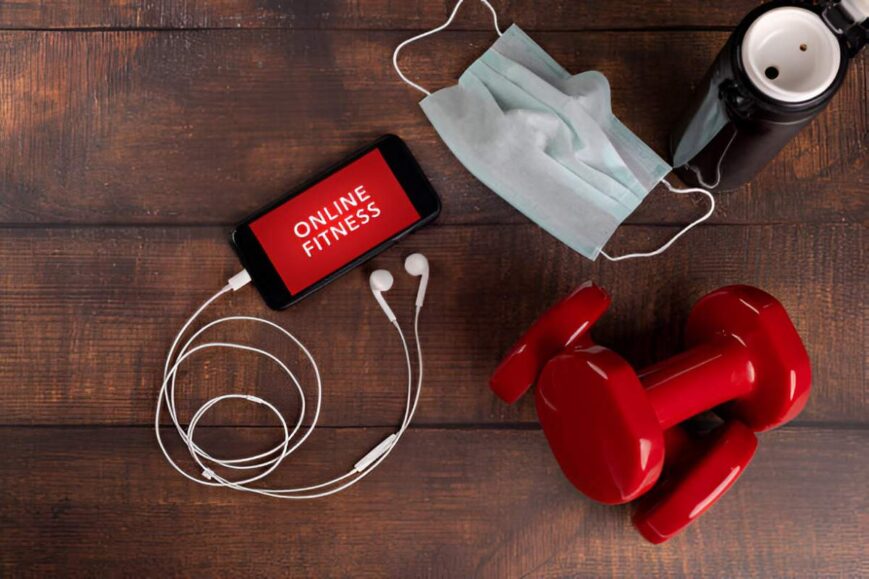Training like an athlete goes beyond intense workouts. It is a mindset that focuses on consistent improvement in physical fitness, mental strength, and sustainable habits. By adopting this approach, you can transform your health and resilience in practical and lasting ways.
Enhanced Physical Fitness
Training like an athlete comes with many physical benefits. These improvements are not limited to athletes but are achievable for anyone committed to a regular fitness routine.
Cardiovascular Endurance
Engaging in cardio activities, such as running, cycling, or swimming, strengthens your heart and improves circulation. This lowers your risk of heart diseases like high blood pressure and heart attacks, ensuring a healthier cardiovascular system.
Strength and Muscle Development
Strength training builds and tones muscles, supports better posture, and reduces the likelihood of injuries. It also increases metabolism, making it easier to maintain a healthy weight.
Flexibility and Mobility
Stretching and flexibility exercises prevent injuries, improve performance, and maintain agility. These practices are especially helpful as we age, keeping joints and muscles functional and pain-free.
Functional Fitness
Functional training focuses on movements that mimic daily activities, such as lifting, bending, or reaching. This ensures that your workouts have practical benefits for real-life tasks, improving overall efficiency in daily life.
Weight Management
Combining strength, cardio, and flexibility exercises helps burn calories effectively. Maintaining a healthy weight reduces risks associated with obesity, such as diabetes and joint issues.
Injury Prevention
Athletes emphasize injury prevention by strengthening their core muscles, improving balance, and focusing on proper form. These strategies reduce the risk of strains and sprains, allowing for more consistent and enjoyable physical activity.
Better Sleep
Regular physical activity significantly improves sleep quality. Aerobic exercises, in particular, help regulate sleep cycles, making it easier to fall asleep and wake up refreshed. Better sleep also enhances recovery, ensuring that your body and mind are ready for the next day.
Mental Resilience and the Athletic Mindset
An athlete’s approach to mental toughness can positively impact many areas of life, from handling stress to achieving personal goals.
Goal Setting
Athletes set SMART (Specific, Measurable, Achievable, Relevant, Time-bound) goals to track their progress. This structured method keeps motivation high and helps maintain focus, whether in fitness or daily tasks.
Consistency
Building a routine through regular workouts creates a sense of discipline. Consistency is key for reaching fitness milestones and maintaining long-term health.
Work Ethic
Athletes push through plateaus by embracing challenges. This mindset encourages personal growth and builds the determination needed to excel.
Resilience
Facing setbacks is part of every athlete’s journey. Overcoming these obstacles strengthens mental fortitude, a valuable skill for navigating life’s challenges.
Nutrition
Proper nutrition supports energy, performance, and recovery. Athletes prioritize balanced meals with proteins, carbohydrates, and healthy fats, a strategy that benefits anyone striving for better health.
Stress Management
Mindfulness, meditation, and breathing exercises are tools athletes use to manage stress. These techniques can help maintain emotional stability and improve focus in high-pressure situations.
Confidence and Focus
Success in athletic training boosts confidence and reinforces self-esteem. The focus developed during workouts translates to better productivity and attention in other areas of life.
Social and Community Benefits
Athletic training often fosters a sense of connection and belonging. Whether through group workouts or community sports, these social elements support mental well-being and accountability.
Social Connections
Joining a fitness class or team provides opportunities to build relationships. These connections create a supportive environment that encourages growth and resilience.
Community Engagement
Participating in fitness events or group challenges fosters teamwork and collective achievement. This sense of purpose boosts motivation and helps reduce feelings of isolation.
Turning Sports Passion into Fitness Motivation
For sports enthusiasts, staying connected to the excitement of athletic events can fuel personal fitness goals. Platforms like an online sportsbook not only provide a space to track games and analyze player performances but also inspire a deeper connection to the athletic mindset. By incorporating the strategies, discipline, and energy witnessed in professional sports into your workouts, you can transform passive sports fandom into active participation.
Whether it’s mimicking training techniques from your favorite players or channeling the thrill of competition into your routines, this integration bridges the gap between observing greatness and achieving it in your own fitness journey.
Training Strategies for Success
To train like an athlete, it’s essential to adopt varied and strategic approaches that ensure balance and longevity.
Variety in Exercise
Incorporating different types of workouts, such as cardio, strength training, and flexibility exercises, ensures well-rounded fitness. This prevents plateaus and keeps training engaging.
Mindfulness Training
Practicing mindfulness reduces stress, sharpens focus, and enhances mental well-being. Visualization and mental preparation are powerful tools for achieving goals.
Balanced Nutrition
Athletes focus on meals that fuel their training and recovery. A mix of lean proteins, whole grains, and healthy fats supports energy levels and muscle repair.
Lifelong Commitment
Athletic training emphasizes the importance of sustainability. Building habits that align with long-term goals ensures lasting health and well-being.
Conclusion
Training like an athlete is about more than physical fitness. It’s a holistic approach to improving health, resilience, and quality of life. By embracing these principles, you can create a sustainable routine that strengthens both your body and mind. Start with small changes and stay consistent—you’ll be amazed at the transformation.

















